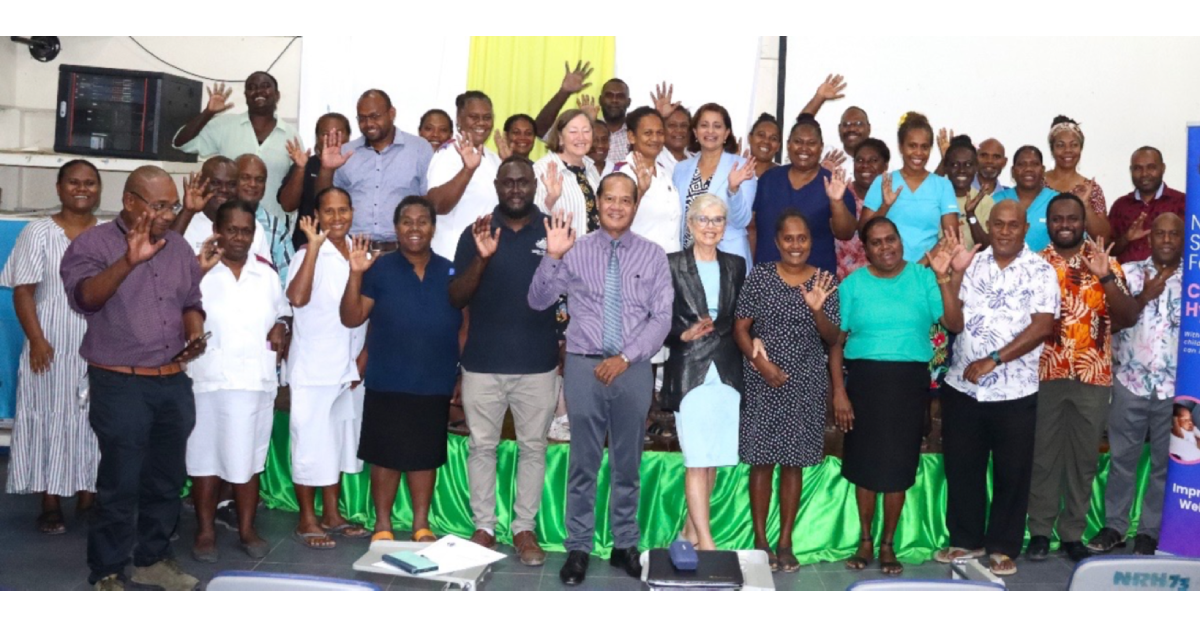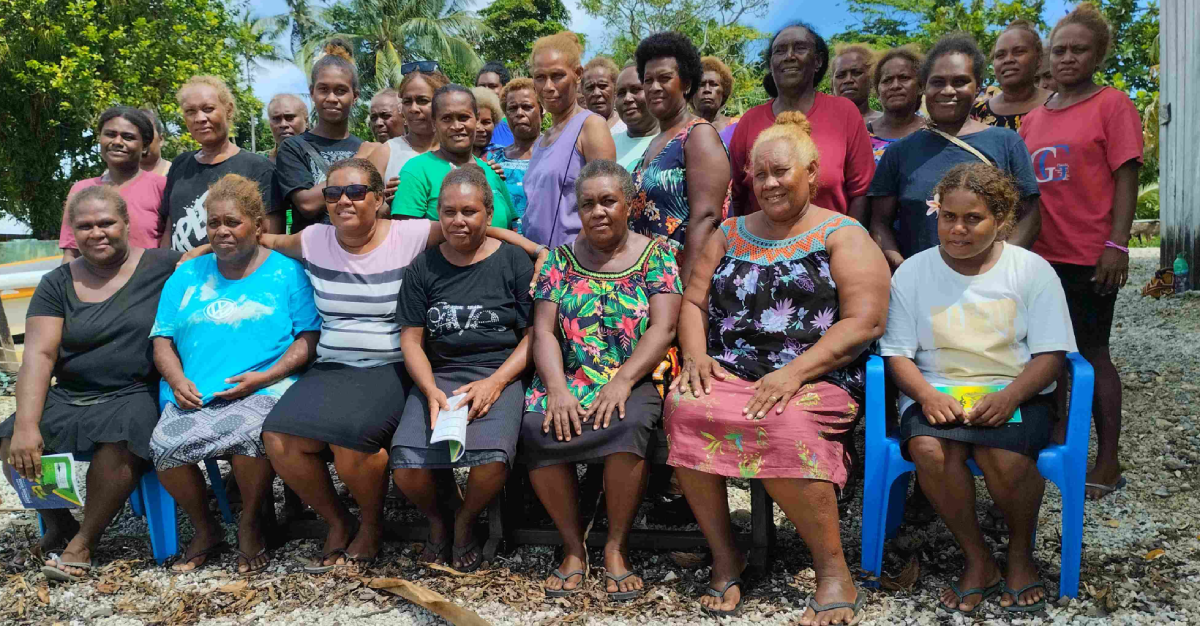The National Referral Hospital (NRH) and collaborative partners launched on 12th June, the Newborn Screening Project for Congenital Hypothyroidism.
It is a milestone for Newborn Screening and a crucial step towards ensuring the health and well-being of our newborn babies who has Congenital hypothyroidism.
This is a 3-year pilot project to initiate newborn Screening with the testing of cord blood for all newborn delivered at NRH and the Naha Birthing Centre once its completed and become operational, with a view to expanding to the rest of the Solomon Islands once feasibility is established. This is towards establishing the first Newborn Care Screening program and Centre in the Region.
This project aim is to make diagnosis and provide the treatment for congenital hypothyroidism, at the earliest time possible after birth. It is crucial for early initiation of treatment and for the long-term outcomes for children with congenital hypothyroidism from the trajectory of severe developmental delay and stunted growth.
It should enable the patient to achieve a healthy life, just as any well newborn baby towards achieving their life potentials and participate normally in the mainstream society. This is not happening at the moment in Solomon Islands because it is very difficult to make the diagnosis without early laboratory testing in newborns. Children usually present late and while the treatment is available does not make a huge difference.
The health and cost benefits is immense not only for the children and their families but to significantly reduce much of the resources the Ministry of Health and hence the SIG will put into managing a severely disabled child and as an adult.
The project also aims to determine the incidence and clinical features of children with congenital hypothyroidism in Solomon Islands, and to build local capacity to perform Newborn Screening on site and hence early treatment. It is a Masters ’Thesis project for one of the Masters in Medicine in Paediatrics students through the University of Papua New Guinea Dr Zarina Kere.
The project highlights a very strong and long-term collaborative partnerships as one of many initiatives between the Paediatrics, Laboratory and O&G departments at NRH with Australia’s partnership organisations including Taking Paediatrics Abroad (TPA), the Endocrinology Department, Westmead Children’s Hospital, Caring and Living with Neighbours (CLAN) and New South Wales Newborn Born Screening (NSW NBS) laboratory services.
Congenital Hypothyroidism (CHT) is a common disorder worldwide and can lead to severe neurodevelopmental morbidity and stunted growth if left untreated. Screening for congenital hypothyroidism commenced over 50 years ago in several countries worldwide.
Speaking at the launching National Referral Hospital Medical Superintendent Dr Janella Solomons said, the event is a significant milestone in the healthcare journey of Paediatrics in Solomon Islands. “The introduction of Newborn Screening for Congenital Hypothyroidism is a crucial step towards ensuring the health and well-being of our newborns”.
By working together, we can ensure that all newborns have access to this life-changing test and receive treatment and the care they need to thrive”, said Dr Solomon.
She said globally, Congenital Hypothyroidism affects approximately 1 in 2000 to 1 in 4000 newborns worldwide, making it one of the most common preventable causes of intellectual disability.
We do not know the incidence for congenital Hypothyroidism in Solomon Islands, hence the project. Every year we have between 5,000 to 6,000 deliveries at NRH out of around 18,000 births throughout the country. This will increase once the Naha Birthing Centre is completed and become operational.
“If left untreated, congenital hypothyroidism can lead to significant developmental delays, intellectual disability, and other health problems, affecting not only the individual but also their families and communities. Early detection through newborn screening programs is critical to preventing long-term health consequences and ensuring affected children reach their full potential”.
To conclude, Dr Solomon calls for collaboration and partnership between stakeholders.
“Support and Resources – We need necessary support to ensure the sustainability of this program.
Community Engagement – We encourage community members to take an active role in promoting newborn screening and supporting families with affected children”.
Meanwhile, Ambassador of Solomon Islands to Australia Mr. Robert Sisilo, Taking Paediatrics Abroad Dr Kathryn Currow, Endocrinologist Director, Westmead Children’s Hospital Professor Shubha Srinivasan, Senior Scientist NSW NBS Susie Junek, DFAT’s Health Representative Mr. Kelton Sikala and Head of Paediatrics NRH, Dr Titus Nasi all shared similar sentiments on the importance of the project through the improvement of the health and well-being of our children.
– MHMS




